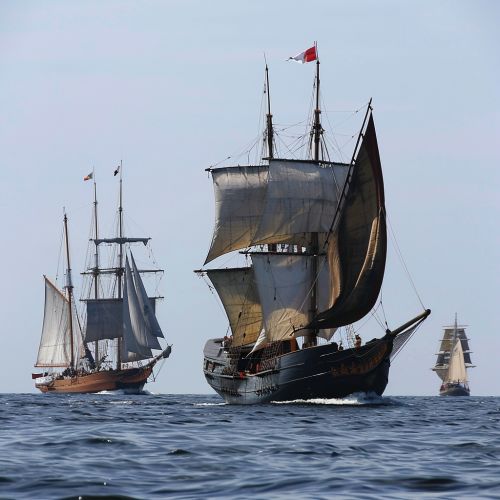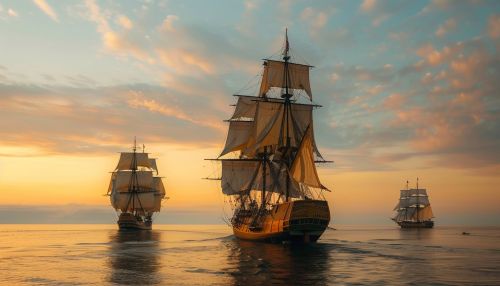Age of Discovery
Introduction
The Age of Discovery, also known as the Age of Exploration, was a period in history from the 15th to the 17th century during which Europeans explored and mapped the world. This era is characterized by extensive overseas exploration, led by the Portuguese and later by the Spanish. The explorers were driven by a variety of motivations, including the desire for new trade routes, the spread of Christianity, and scientific curiosity.


Origins
The Age of Discovery originated from a series of technological and intellectual developments in Europe that allowed for the detailed exploration of the world beyond its previous boundaries. It started with the creation of astrolabes, improved ship designs, and the development of a system of navigation based on latitude and longitude.
Technological advancements
The Age of Discovery was facilitated by significant technological advancements. The development of the caravel, a ship capable of returning against the wind, was a crucial factor. The caravel was a small, highly maneuverable ship developed in the 15th century by the Portuguese to explore along the West African coast and into the Atlantic Ocean.
Another significant technological advancement was the astrolabe, an instrument used by navigators to measure the altitude of a celestial body above the horizon. This allowed for more accurate navigation and mapping, particularly at sea.
Major explorations
The Age of Discovery is marked by numerous significant explorations. In 1492, Christopher Columbus made his famous voyage to the Americas, which was then unknown to the Europeans. This marked the beginning of sustained European contact with the Americas, leading to a period of exploration, conquest, and colonization.
Portuguese explorer Vasco da Gama is known for his voyage to India in 1498. This marked the beginning of the Portuguese presence in the Indian Ocean and established a sea route from Europe to the East.
Impact on the world
The Age of Discovery had a profound impact on the world. It led to the establishment of direct trade links between Europe and Asia and the Americas, bypassing the traditional land routes. This had significant economic implications, leading to the rise of mercantilism and the creation of the first global economy.
The explorations also led to the spread of Christianity, as the explorers often sought to convert the indigenous populations they encountered. This had significant cultural and religious implications, particularly in the Americas and parts of Asia.
Conclusion
The Age of Discovery was a pivotal period in world history, marking the beginning of global interconnectedness. It led to significant cultural, economic, and political changes, many of which continue to shape the world today.
